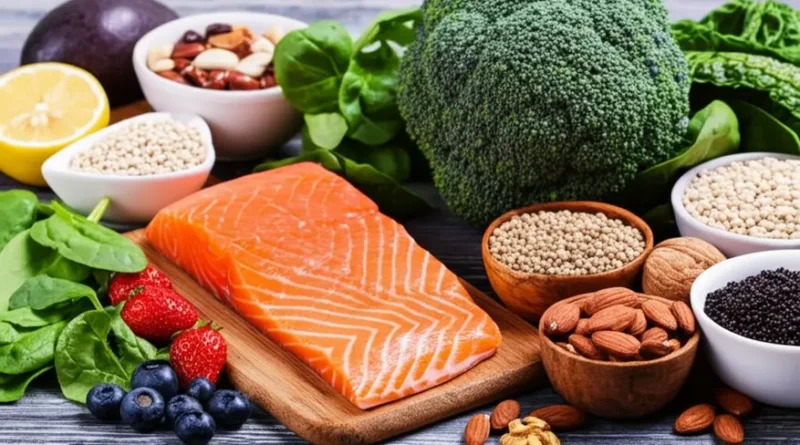The Best Anti-Inflammatory Foods to Add to Your Diet
Inflammation is a natural process that helps the body heal; however, chronic inflammation is linked to several diseases, including arthritis, heart disease, and even certain cancers. The foods we eat can significantly impact our inflammatory responses. By choosing anti-inflammatory foods, we can help mitigate chronic inflammation and promote overall health.
Here are some of the best anti-inflammatory foods to consider incorporating into your diet.
1. Fatty Fish
Fatty fish, such as salmon, mackerel, sardines, and herring, are rich in omega-3 fatty acids. Omega-3s are known for their ability to reduce inflammation in the body. Regularly consuming fatty fish can have a significant effect on markers of inflammation.
2. Leafy Greens
Dark leafy greens, like spinach, kale, and Swiss chard, are packed with antioxidants, vitamins, and minerals that combat inflammation. They are rich in vitamin K, which has been shown to play a role in regulating inflammatory markers.
3. Berries
Berries such as blueberries, strawberries, and raspberries are loaded with antioxidants, particularly flavonoids, which have strong anti-inflammatory properties. Including a variety of berries in your daily diet can help protect your body from oxidative stress and inflammation.
4. Nuts
Nuts are a great source of healthy fats, especially almonds and walnuts. Nuts are not only rich in omega-3s but also provide vitamin E, an important antioxidant that helps combat inflammation.
5. Olive Oil
Extra virgin olive oil is an essential element of the Mediterranean diet and is renowned for its anti-inflammatory properties. High in oleocanthal, which has been found to work similarly to ibuprofen in reducing inflammation, olive oil is a great choice for cooking or as a dressing.
6. Turmeric
Turmeric, a spice often used in Indian cuisine, contains curcumin, a compound with potent anti-inflammatory properties. It can be easily added to various dishes and is often used in smoothies or teas. Incorporating black pepper improves curcumin’s absorption, enhancing its anti-inflammatory effects.
7. Beans
Beans are an excellent source of fiber and protein, making them a healthy addition to any diet. They contain antioxidants and other compounds that help reduce inflammation. Varieties like black beans and kidney beans are particularly beneficial.
8. Avocado
Avocados are rich in healthy fats and contain antioxidants that help reduce inflammation. They are also high in potassium, which is favorable for heart health and may further reduce inflammation.
9. Whole Grains
Whole grains, such as oats, brown rice, and quinoa, are high in fiber and antioxidants. They have a lower glycemic index compared to refined grains and can help reduce inflammation levels in the body.
10. Green Tea
Green tea is renowned for its health benefits, especially due to its high content of polyphenols, which are powerful antioxidants that help reduce inflammation. Regular consumption of green tea may help lower your risk for chronic diseases linked to inflammation.
Incorporating these anti-inflammatory foods into your diet can improve your overall health and well-being. Experiment with various recipes, from salads sprinkled with nuts and berries to lean protein dishes complemented with leafy greens and olive oil. Remember that a balanced diet, rich in fruits, vegetables, whole grains, and healthy fats, is the key to effective inflammation control.
As always, consult with your healthcare provider or a registered dietitian before making significant changes to your diet, especially if you have existing health conditions. Creating a plan that works best for your body is essential to managing inflammation effectively.

